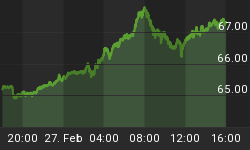In these trying times it is critical that we remain focused on the big picture and stay true to our convictions; one can always revisit their reasoning and conclusions, like I do, but I would hope that at this stage many of you have done so as well, so that our minds are not treated like a flimsy ship in rough seas.
I continue to get questions about deflation, with comparisons to the 1930's and more recently of Japan. Although each of those cases, much like today, dealt with bubbles that blew up due to easy money, neither of their outcomes provides us with a case study of what to expect in our unfolding crisis today.
In the 1930's panic, intense bank runs led to across the board bank failures. This fed on itself, as depositors' trust in paper assets following the 1929 stock market crash was destroyed. Money withdrawn from bank accounts went into the safety of gold and other tangibles, which led to a contraction of bank balance sheets. Unlike today, however, there were no FDIC guarantees at the time, so an unabated balance sheet contraction led to money supply contraction and a deflationary depression. The dollar was on a gold standard at the time as well, so a Federal Reserve providing untold amounts of liquidity "out of thin air" like they are doing today was out of the question.
In the early 1990's, the Japanese government raised interest rates in an effort to deflate its twin real estate and stock market bubbles. The Yen would appreciate dramatically as a result, and those holding Yen debt found it difficult to service that debt as asset values were collapsing. While that may sound very similar to what is happening today in the US, there is a critical difference; the US dollar is rallying not because of a monetary contraction brought about by the Fed raising interest rates -- the Fed is in fact lowering rates and expanding the money supply -- but rather due to temporary deleveraging forces that will soon abate. We must also remember that the Japanese consumer was a saver and better equipped to navigate the difficult economic times, and that Japan's export sector remained strong throughout the 90's keeping many Japanese employed, despite trouble in its financial sector.
In neither of the above cases did the respective central banks flood the markets with the enormous amounts of liquidity we are seeing today. This will cause a severe inflation. Japan did eventually reverse its policy, creating the so-called Yen carry trade, but the cheap money inflated higher yielding overseas assets instead of spurring domestic demand. On that score there will be a similarity, in that newly created dollars will eventually find their way to higher yielding assets in stronger overseas economies, as well as return to tangible assets of every stripe.















